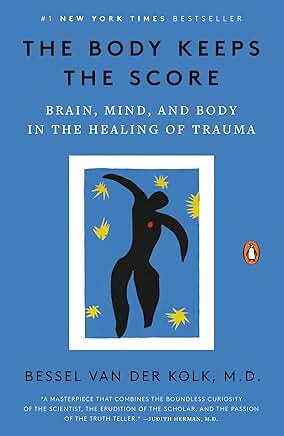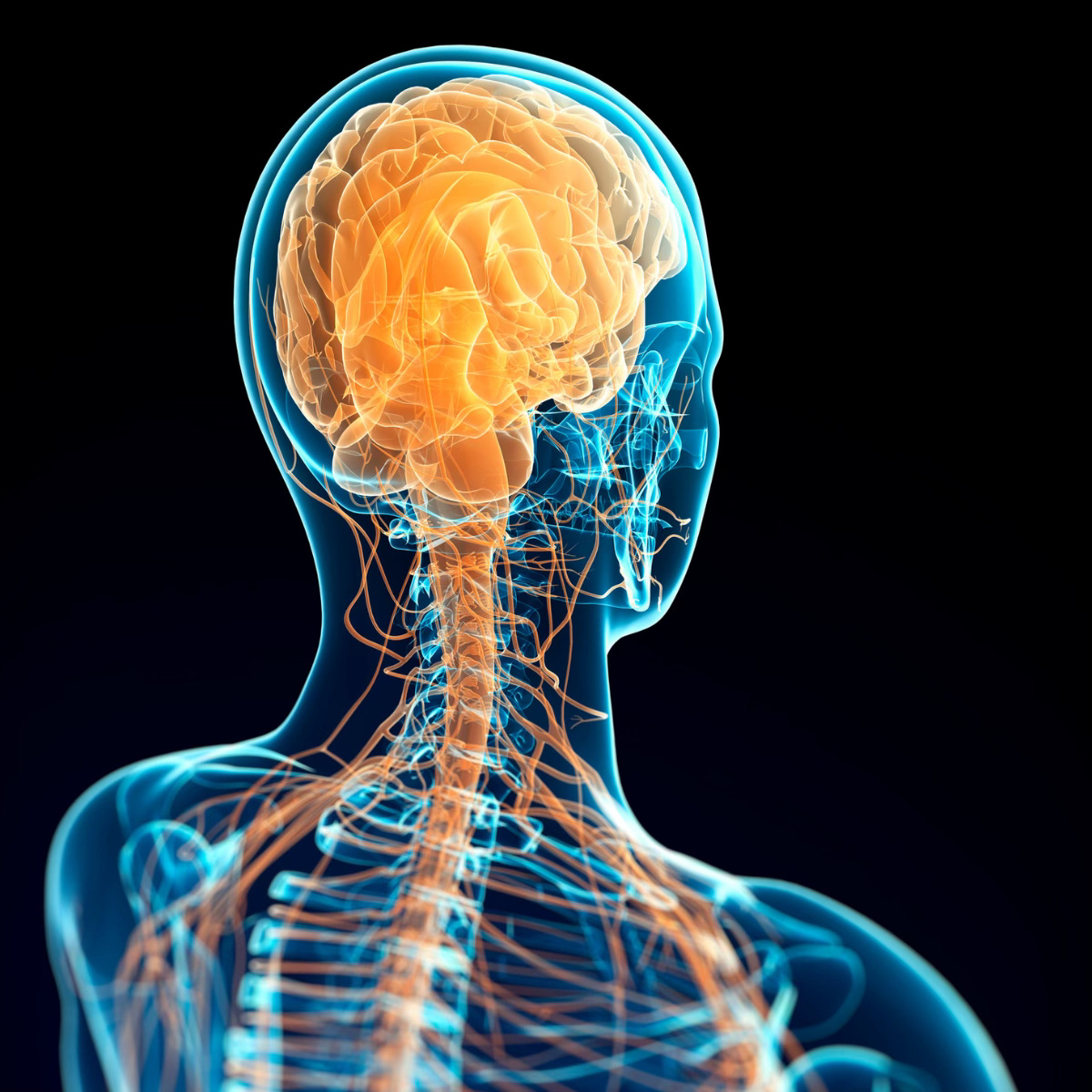Your Body Remembers What Your Mind Forgets: The Connection Between Trauma and Physical Symptoms
That pain you can't explain? Your body might be telling a story your conscious mind doesn't remember.
As a therapist working with people and their trauma, I've watched something unfold hundreds of times in my practice. A client complains about chronic stomach issues, mysterious pain, or sleep problems that no medical intervention seems to resolve.
They've seen specialists. They've tried medications. They've changed diets. Nothing works.
And then we start talking about their history.
The Truth About Trauma Your Doctor Won't Tell You
Let's clarify something right away: trauma isn't what most people think it is.
Often, I cringe whenever I hear someone casually say, "That was so traumatic!" about a minor inconvenience. Not because I'm the trauma police, but because this kind of language minimizes what trauma actually does to the human nervous system.
I've sat with men who survived violent upbringings, physical abuse, and sexual violence. But I've also worked with just as many who developed profound trauma responses from what might seem like "lesser" experiences – persistent childhood neglect, constant microaggressions about their sexuality, or living years in environments where they had to hide fundamental parts of themselves.
Here's what I've learned:
Trauma isn't defined by what happened to you. It's defined by how your nervous system processed what occurred.
Last month, a client, I'll call James, told me something that stopped me in my tracks. "I've never been through anything that bad," he said. "I don't deserve to call it trauma."
But this same man couldn't make it through a workday without crippling anxiety. His body was telling a different story than his mind.
Your First Memories Live in Your Muscles, Not Your Mind
When you were a baby, you didn't have the brain structures to create verbal memories. Your hippocampus – the part of your brain responsible for memory – wasn't fully developed until you were about three years old.
But that doesn't mean you weren't recording experiences.
Every single thing that happened to you in those early years – every time you cried and weren't comforted, every moment of fear or connection – got stored in your body as physical sensations.
Your body was saying: "I'll remember this for you."
We call this "body memory," and it's why traditional talk therapy often hits a wall when dealing with early trauma. You can't talk through what was never stored in language to begin with.
The Two Faces of Trauma Nobody Talks About
In my experience working exclusively with gay men, I've seen how trauma shapes itself in distinctly different ways. I think of these as "lightning strike" versus "slow poison" trauma.
Lightning strike trauma (what researchers call Type I) is the kind we typically recognize – a specific, overwhelming event where you feared for your life or safety. The gay-bashing incident. The sexual assault. The car accident.
But slow poison trauma (Type II) is the kind I see destroying many clients' lives in much more insidious ways. It's the persistent experience of being told your sexuality is wrong. It's growing up with parents who subtly rejected your authentic self. It's the constant vigilance of navigating unsafe spaces.
One of my clients, a successful executive, couldn't understand why he kept developing autoimmune conditions despite having "a good life." But when we explored his history, we discovered a childhood where he constantly had to monitor his father's unpredictable moods.
His nervous system never learned that safety was the default state.
His body had been in combat mode for 40 years.
Your Nervous System Doesn't Know the Danger is Over
If you've experienced trauma, your body might still be fighting a war that ended years ago.
I see this play out in my practice constantly. A client jumps at loud noises. Another can't tolerate certain physical sensations. Someone else dissociates during intimacy.
Their autonomic nervous system – the unconscious part that controls your fight/flight/freeze responses – is stuck in survival mode. It never got the "all clear" signal.
And that stuff will exhaust you.
Your nervous system doesn't care about your job promotion, your beautiful apartment, or your supportive partner. It cares about one thing: keeping you alive. And if it learned early that the world isn't safe, it will keep preparing for danger, even when that danger is long gone.
This is why so many gay men develop physical symptoms that doctors can't explain:
Chronic digestive issues (the gut is often referred to as your "second brain")
Unexplained muscle pain and tension
Sleep disturbances and nightmares
Hypersensitivity to sounds, lights, or touch
Autoimmune conditions where the body attacks itself
I had one client who developed severe IBS symptoms whenever he visited his family of origin, where he'd been subtly rejected for his sexuality. His conscious mind said, "They're mostly accepting now." His gut had a different opinion.
Why Your Body Remembers Even When You Try to Forget
The mind has a remarkable capacity to protect us from overwhelming pain. It can compartmentalize, rationalize, or simply forget the most painful experiences.
But the body keeps the score. Always.

I've worked with countless gay men who tell me, "I had a perfectly fine childhood" – and then describe chronic anxiety, relationship patterns of expecting rejection, or physical symptoms that appeared after certain triggers.
Their conscious mind is trying to protect them from pain. Their body is trying to process it.
And this is where I often see a critical mistake in traditional therapy approaches. Trying to "talk through" trauma without addressing how it lives in the body is like trying to clear a clogged pipe by describing the blockage.
You need to get in there and make changes.
The Missing Piece: Why Your Body Holds the Key to Healing
The most significant shifts I've witnessed in my practice have come when clients begin to understand and work with their body's trauma responses rather than fighting against them.
This is where somatic (body-centered) approaches become impactful.
I remember working with Alex, a 42-year-old who'd been in traditional CBT therapy numerous times without resolving his anxiety. Through talk therapy and incorporating somatic work – learning to track body sensations, discharge activation, and gently process traumatic energy – he experienced more relief than in ten years of just talking.
This isn't vague or mystical. It's neuroscience.
When trauma gets locked in the body, it creates patterns of tension, defense, and dysregulation. Talking can help us understand these patterns, but somatic work helps us change them at their source.
Some of the most effective approaches I use in my practice include:
Teaching clients to track body sensations with curiosity rather than fear
Gentle movement practices that help release trapped energy
Nervous system regulation techniques that interrupt fight/flight/freeze cycles
Mindful breathing that retrains the vagus nerve (your nervous system's calming mechanism)
Creating safety in the body through boundary work and resourcing
But perhaps the most important element is compassion. So many of my clients feel betrayed by their bodies – by the anxiety, the pain, the sleep problems, the digestive issues. They see these symptoms as enemies to be conquered.
I invite them to see a different truth:
Your body has been trying to protect you all along.
Those symptoms aren't failures. They're messengers carrying information you need to recover.
What I Wish Everyone Understood About Trauma
After sitting with hundreds of clients as they navigate their trauma, here's what I know for sure: healing is possible. Your nervous system can learn new patterns. Your body can release old wounds.
But it rarely happens through insight alone.
Understanding why you feel anxious is helpful. Learning how to regulate your nervous system when anxiety strikes creates meaningful change.
This is why I ultimately shifted my practice toward incorporating somatic approaches – not because the talking isn't valuable (quite the opposite), but because I watched too many brilliant, insightful clients understand everything about their trauma while still feeling trapped in its grip.
The body needs to be part of the conversation.
If you're struggling with unexplained physical symptoms, anxiety that won't quit no matter how much you understand it, or relationship patterns you can't seem to break – pay attention. Your body might be telling you something your mind doesn't know how to hear.
And finding someone who can help you listen to that wisdom might be the most important step you take in your healing journey.
* Any names or identifiable descriptions of people have been altered to maintain confidentiality.
If you're a gay man and are experiencing physical symptoms that might be related to trauma, I encourage you to reach out. I've helped hundreds navigate the complex relationship between trauma and the body. Book a session through my website to learn more about how we can work together.







